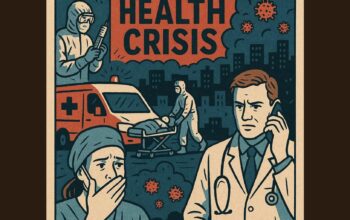COVID activity in the District of Columbia remains low, but federal health data shows infections are beginning to climb nationally. The timing coincides with a controversial decision by the Food and Drug Administration (FDA) to restrict access to updated fall COVID shots, raising fears about how the District may fare as respiratory virus season intensifies.
The FDA approved new shots only for seniors and those with certain medical conditions. Health and Human Services Secretary Robert F. Kennedy Jr. announced the move in the last week of August, a sharp break from the prior guidance that recommended vaccination for nearly everyone six months and older.
“The FDA approved updated COVID-19 shots on Wednesday, but limited their use for many Americans, recommending them only for people 65 and older or those younger with a health condition that puts them at higher risk. So they want to keep seniors alive, but kill off younger folks,” writer, artist and social media user Michael Jackson Smith wrote on X, formerly known as Twitter. “Has there ever been such a large conglomerate of idiots in D.C.?”
Kennedy — a longtime vaccine skeptic — recently dismissed the Centers for Disease Control and Prevention’s (CDC) advisory panel, replacing all 17 members with his own appointees, several of them vaccine opponents.
CDC surveillance shows that overall respiratory illness activity in D.C. is currently very low. COVID-related emergency department visits in the city remain at minimal levels, and both flu and RSV activity are also rated very low. Yet the CDC warns COVID cases are trending upward in most states, with the highest emergency department visits nationally among young children.
That risk looms large for D.C. families, where pediatricians have already sounded alarms.
Dr. Susan Kressly, president of the American Academy of Pediatrics, has called the FDA’s restrictions “deeply troubling,” noting that “any barrier to COVID-19 vaccination creates a dangerous vulnerability for children and their families” at the start of respiratory virus season.
For D.C.’s Black and brown communities, which suffered disproportionately during earlier COVID surges, advocates warn the new policy could widen health disparities.
Source: Published without changes from Washington Informer Newspaper




